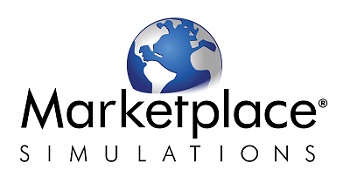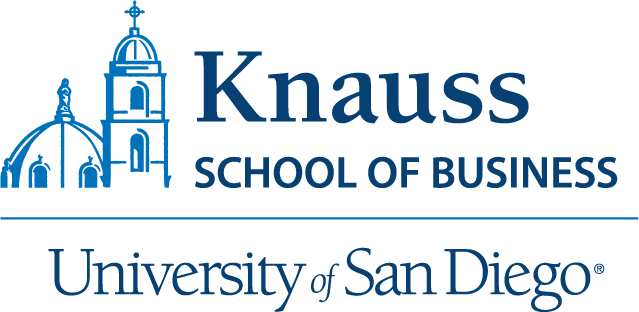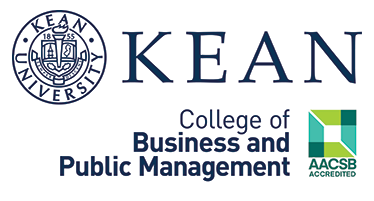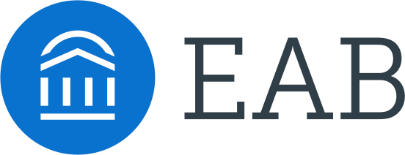
Deans Conference
Business Schools at a Crossroads: Redefining Relevance
19 – 21 October 2025
Toronto, ON, Canada
Agenda Timezone:
Agenda:
Agenda Timezone:
ET
Eastern Time
Saturday
18 October
4:00 PM - 6:00 PM ET
Early Conference Check-In and Information
Check-in early and avoid the morning rush! This is your chance to receive your badge, explore the venue, and settle in before the sessions begin tomorrow. Start your conference journey with ease and connect with your peers in a relaxed setting.
Sunday
19 October
10:00 AM - 10:30 AM ET
Navigating Deans Conference: A Guide for New Deans and First-Time Attendees
Join us for a session designed specifically for new deans and first-time conference attendees. This welcome session provides an excellent opportunity to network with peers, meet AACSB leadership, and connect with fellow attendees. Gain valuable insights on how to navigate the conference, maximize your experience, and build meaningful relationships that will support your professional journey. Don't miss this chance to start your conference with a strong foundation and a network of supportive colleagues.
10:45 AM - 11:45 AM ET
Community and Connectedness Affinity Group Meeting
Member-Driven
What's Next for the Community and Connectedness Affinity Group: This session seeks feedback from attendees on how their institutions are/have shifted their DEI initiatives and ways in which the Community and Connectedness affinity group can bring topics and support to both virtual sessions and in-person sessions attached to AACSB meetings and conferences. These sessions are open to all members regardless of membership within the group or AACSB!
Anthony C. Nelson
Dean, School of Business
School of Business
North Carolina Central University
Tomas Gomez-Arias
Dean, Jack H. Brown College of Business and Public Administration
Jack H. Brown College of Business and Public Administration
California State University, San Bernardino
11:45 AM - 12:45 PM ET
Takeaway Lunch Service
Make the most of your midday break with a convenient boxed lunch. Whether you're heading to an affinity group meeting, catching up with colleagues, or taking a quiet moment to recharge, feel free to take your lunch and enjoy it wherever you feel most comfortable.
12:00 PM - 1:00 PM ET
Digital Transformation Affinity Group Meeting
Member-Driven
Driving AI Adoption Through Academia-Industry Collaboration: Join our session to explore how industry and community partnerships can accelerate the adoption of AI in business education. The speakers will discuss how these collaborations give students exposure to real-world AI applications, create new opportunities for experiential learning, and strengthen curriculum design to keep pace with technological change. Together, these partnerships help align students and faculty with industry needs to prepare graduates for success in an AI-driven future. These sessions are open to all attendees regardless of membership status within the group or AACSB! Please bring your lunch to the session!
Ing-Haw Cheng
Professor of Derivatives and Risk Management
Joseph L. Rotman School of Management
University of Toronto
Jeff Guan
Associate Dean of Programs
College of Business
University of Louisville
12:00 PM - 1:00 PM ET
New Deans Affinity Group Meeting
Member-Driven
New Deans Roundtable: Join other deans to share challenges, successes and ideas in an informal roundtable format . Discussion topics may include the impact of US higher ed changes on US and non-US universities, teaching and learning, faculty engagement, resource utilization and/or other areas of interest. This session is open to all attendees regardless of membership status in the group or AACSB! Please feel free to bring your lunch into the session!
Aarti Ivanic
Dean
Barney School of Business
University of Hartford
David Taylor
Dean
Jack Welch College of Business
Sacred Heart University
Matthew Guah
Dean
College of Business & Information Systems
South Carolina State University
1:15 PM - 2:00 PM ET
Resource Session: Bloomberg Media Fireside Chat: The Increasing Importance of Geopolitics in B-school Curricula
In an era of global conflict, trade disruption, and political uncertainty, understanding geopolitics has become essential for future business leaders. In this fireside chat, Ruben and Dimitra explore how B-schools are integrating real-world geopolitical issues—from war and tariffs to corporate ethics—into their curricula. Drawing on examples from leading programs and corporate case studies, they’ll discuss what employers now expect from graduates entering an increasingly complex global economy, and how business education must evolve to prepare students for leadership at the intersection of economics, politics, and society.
Dimitra Kessenides
Senior Editor, Business Schools
Businessweek
Ruben Adorno
Global Academic Partnerships
Bloomberg.com
1:15 PM - 2:15 PM ET
Women Advancing Management Education Affinity Group Meeting
Member-Driven
"Let's talk about it, Shared Strategies for Difficult Situations" Leadership landmines—ethical dilemmas, personnel conflicts, political tensions—are part of every dean’s journey. This interactive session uses short, real-world mini-cases to spark small-group discussions about common but uncomfortable challenges. Together, we’ll share insights, surface practical strategies, and support one another in navigating the complexities of academic leadership. These sessions are open to all attendees regardless of membership status in the group or AACSB!
Jayati Ghosh
Dean, Scott L. Carmona College of Business
Scott L. Carmona College of Business
Saginaw Valley State University
Lisa Marie Victoravich
Dean, College of Business and Economics, University of Idaho
College of Business and Economics
University of Idaho
Lynne Richardson
Interim Dean
Michael E. Stephens College of Business
University of Montevallo
2:30 PM - 3:15 PM ET
Resource Session: Business Simulations in the Age of AI
AI is rapidly transforming the workplace, automating tasks, and redefining entire professions. How will it reshape simulation-based learning in business education? How will it change the role of the instructor? This session explores how AI can enhance business simulations by automating routine instructional tasks, personalizing student experiences, and improving teaching effectiveness. As AI takes on more of the heavy lifting, instructors will be able to shift toward individualized mentoring, providing deeper, more empathetic support to a larger number of learners.
Ernest Cadotte
Author of Marketplace Simulations
Marketplace Simulations
Joyce E. A. Russell
Dean Emeritus and Professor
Villanova School of Business
Villanova University
2:30 PM - 3:30 PM ET
Canada Regional Network Meeting
Member-Driven
Join us for the launch of the AACSB Canadian Regional Network (CRN) during the Deans Conference in Toronto! This casual networking event is open to all AACSB member schools. Connect with peers, explore table topics, and hear from special guests Tim Mescon and Libby Rozell of AACSB. This session is open to all attendees.
Shari Wierenga
Manager, Accreditation, Data and Rankings
Peter B. Gustavson School of Business
University of Victoria
William Louie
Director, Accreditation and Assessment
Beedie School of Business
Simon Fraser University
2:30 PM - 3:30 PM ET
Small Schools Affinity Group Meeting
Member-Driven
Beyond the Timeline: Rethinking AACSB Faculty Qualifications: AACSB’s move from a 5-year to a 6-year accreditation window offers new flexibility — but also raises questions about maintaining standards, balancing workloads, and demonstrating impact. Journal review and publication timelines are lengthening. How is your school adjusting expectations to account for this? Please bring your faculty qualifications and join our discussion. These sessions are open to all attendees regardless of membership status in the group or within AACSB!
Daniel Connolly
Dean
School of Business
St. John Fisher University
Julie Petherbridge
Dean, Stetson-Hatcher School of Business
Stetson-Hatcher School of Business
Mercer University-Macon and Atlanta Campuses
3:30 PM - 7:30 PM ET
Sponsor Showcase
Maximize your conference experience while exploring the Sponsor Showcase, networking with peers and interacting with the conference sponsors. Whether you are seeking new insights or expanding your professional network, the Sponsor Showcase is your central space to engage, learn, and grow throughout the conference.
3:45 PM - 4:30 PM ET
Resource Session: Extending Access, Elevating Value: NEIU's College of Business & Technology's Strategy for Validating Degree Knowledge Through Micro-Credentials
Discover how NEIU is enabling business students to show that what they learn in the classroom translates into workforce skills, while extending impact to alumni, faculty, and student groups across the campus community.
Michael Bedell
Dean
Northeastern Illinois University
Nathan Lippe
Strategic University Development
Coursera
3:45 PM - 4:30 PM ET
Accreditation Q&A: CIR
This session will be designed for those planning for a Continuous Improvement Review visit. Experienced Peer Review Team members will discuss visit preparation and planning, visit execution, and what to do when the unexpected happens.
Scott A. Dawson
Dean
Business School
University of Colorado Denver
Stephanie M. Bryant
Executive Vice President and Chief Accreditation Officer
AACSB International
3:45 PM - 4:30 PM ET
Accreditation Q&A: Initial
If you have an upcoming Initial Accreditation visit or are considering accreditation, this session is for you! We invite you to bring questions related to the initial accreditation process as we discuss what is expected and how to thoroughly prepare.
Hanna-Leena Pesonen
Dean
Jyväskylä University School of Business and Economics, University of Jyväskylä
Suzanne Mintz
Vice President of Accreditation
AACSB International
4:45 PM - 5:15 PM ET
Conference Welcome
Join us for a welcome message from Lily Bi, President and CEO of AACSB International.
Lily Bi
President and CEO
AACSB International
5:15 PM - 6:00 PM ET
Why Universities Matter in a Fractured World
Across the globe, universities are under mounting pressure. In an era of political division, funding volatility, and growing ideological scrutiny, their role is being questioned like never before. Yet even amid these challenges, universities remain vital engines of innovation, democratic resilience, economic opportunity, and societal cohesion. This session explores how universities are adapting, and why their role matters more than ever. How do different models of higher education contribute uniquely to their societies? Why is defending diverse thought and free inquiry more urgent than ever? And where do business schools fit in this broader ecosystem, as they prepare leaders to navigate technological, geopolitical, and ethical complexity? Join a discussion that challenges us to rethink how universities, and business schools in particular, can remain resilient, relevant, and trusted in a fractured world.
Moderator
Susan Christoffersen
Dean
Joseph L. Rotman School of Management
University of Toronto
Derek W Thomas
Member of AACSB Board of Directors
National Partner, University Talent Acquisition
KPMG
Jaime Watt
Executive Chairman
Navigator
6:00 PM - 7:30 PM ET
Welcome Reception
Relax and enjoy the company of your colleagues. This reception is the perfect opportunity to unwind and continue the day’s discussions in a more informal setting.
Monday
20 October
8:30 AM - 9:30 AM ET
Breakfast & Networking
Start the day by reconnecting with your peers over breakfast.
8:30 AM - 9:00 AM ET
Connect & Learn: Networking by Region & School Type
Join conversations based on your geographic area or connect with colleagues from institutions similar to yours — large or small, public or private, research-intensive or teaching-focused, urban or rural. Exchange best practices, explore common challenges, and build valuable connections in an informal setting.
8:30 AM - 6:30 PM ET
Sponsor Showcase
Maximize your conference experience while exploring the Sponsor Showcase, networking with peers and interacting with the conference sponsors. Whether you are seeking new insights or expanding your professional network, the Sponsor Showcase is your central space to engage, learn, and grow throughout the conference.
9:00 AM - 10:00 AM ET
Keynote I: Preparing Talent for Tomorrow’s Turbulence
SHRM President and CEO Johnny C. Taylor, Jr. addresses the shifts transforming the world of work: AI-driven job displacement, urgent reskilling demands, changing workforce demographics, and growing incivility in professional spaces. Taylor calls for a bold shift in mindset: to move beyond reactive approaches and embrace their role as architects of a more inclusive, resilient, and future-ready workforce. He challenges educators to harness the full potential of both human and technological intelligence, empower talent across generations, and foster cultures grounded in empathy, adaptability, and mutual respect.
Johnny C. Taylor
President & CEO
Society for Human Resource Management
10:00 AM - 10:45 AM ET
Coffee & Connections
Enjoy coffee and refreshments while connecting with colleagues and peers. Take this opportunity to visit the Sponsor Showcase and discover new ideas and partnerships. Be sure to stop by the Discover AACSB area to explore our full range of offerings – from the Academy to technology, data, and other valuable resources designed to support your institution’s success.
10:10 AM - 10:40 AM ET
Resource Session: Winning in a Competitive Market: New Data on What Modern Learners Expect from Online Business Programs
As Business deans face enrollment pressures and increasing competition, expanding online programs is emerging as a strategic opportunity to attract the fastest growing market—adult learners. But what do modern students really want—and how can institutions differentiate their offerings in a crowded field?
Gain insights from the annual Voice of the Online Learner research, including a deep analysis of the needs and expectations of prospective, current, and graduated online business students. We’ll share data-driven findings and actionable strategies to:
Address the unique needs of working adults
Enhance the student experience to improve retention and completion
Position your business programs for growth and market relevance
Join us to explore how student feedback can inform smarter decisions and elevate your School of Business’s offerings.
10:45 AM - 11:30 AM ET
Advancing Research Impact: A Framework for Broadening and Shaping New Directions
Join AACSB’s Chief Thought Leadership Officer, Professor Eileen McAuliffe PhD, as she presents an exposure draft of the Research Impact Task Force’s work on broadening and advancing the role of business school research in contributing to societal impact. She will be joined by a multistakeholder panel to reflect on the task force’s findings, including:
- The imperative for business schools to expand definitions and indicators of impactful research.
- Perspectives on what constitutes impactful research and emerging directions for schools and faculty to pursue.
- How business schools can build the models, cultures, and structures needed to support these new approaches.
- How linking research impact to societal impact can reinforce the value of business schools in addressing pressing global and community challenges.
Moderator
Eileen McAuliffe
Executive Vice President, Chief Thought Leadership Officer and EMEA
AACSB International
Anthony Brabazon
Dean
UCD School of Business
University College Dublin
Sharon Alvarez
Associate Dean for Faculty Affairs
The Joseph M. Katz Graduate School of Business/College of Business Administration
University of Pittsburgh
Valerie La Traverse
Vice-President, Corporate Affairs and International
Social Sciences and Humanities Research Council
11:45 AM - 12:30 PM ET
(A1) From Your Voice to Our Vision: The Future of AACSB Standards
As AACSB prepares for the 2026 refresh of its business and accounting accreditation standards, it has launched a global listening tour to gather members’ feedback and understand current priorities. This interactive panel features key leaders from the Standards Task Force and policy committees who will share emerging themes and stakeholder insights from around the world. The conversation will explore evolving expectations around rigor, relevance, innovation, and societal impact. Attendees will gain early visibility into potential refinements and have a chance to engage directly in shaping the next phase of AACSB’s accreditation standards.
Moderator
Stephanie M. Bryant
Executive Vice President and Chief Accreditation Officer
AACSB International
Frank Buckless
Member of AACSB Board of Directors
Dean
Poole College of Management
North Carolina State University
Ian O. Williamson
Vice Chair-Chair Elect of AACSB Board of Directors
Dean
The Paul Merage School of Business
University of California, Irvine
11:45 AM - 12:30 PM ET
(A2) Mini TED Talk – Style Presentations: Igniting Indigenous Innovation
Drawing from the first-ever National Business School Indigenous Engagement Survey in Canada, this session will spotlight innovative practices from across the country. Each speaker will deliver a mini TED Talk–style presentation highlighting examples of curriculum design, research initiatives, community partnerships, student and faculty support, and reconciliation strategies. Walk away with actionable insights, models, and tools to integrate Indigenous knowledge into your school’s mission and contribute to inclusive, future-focused innovation.
Moderator
Terri Lynn Morrison
Executive Director
Luminary
Keith A. Willoughby
Dean
Edwards School of Business
University of Saskatchewan
Kelly Lendsay
Luminary
Michael Henry
Dean
School of Business and Economics
Thompson Rivers University
William Wei
Dean and Professor
Faculty of Business and Economics
Algoma University
11:45 AM - 12:30 PM ET
(A3) Rethinking Global Mobility
Global mobility is being reshaped by geopolitical shifts, economic pressures, and evolving learner expectations - yet it remains central to the identity and impact of business schools. In this session, speakers will explore fresh empirical data on student and faculty mobility across key regions. We’ll examine how institutions are navigating disrupted pathways, and what these shifts mean for recruitment, retention, and long-term planning. The discussion will also highlight faculty hiring trends and mobility patterns, offering practical insights into how schools can lead through uncertainty, cross borders, physically and digitally, and design globally connected futures.
Ben Webb
Executive Director of the Americas
QS Quacquarelli Symonds
Joseph Coughlan
Head of School of Business
School of Business
Maynooth University
Keryn Chalmers
Deputy Dean, Engagement
Monash Business School, Monash University
11:45 AM - 12:30 PM ET
(A4) The End of the MBA as We Know It
Many business school leaders agree: the MBA, once the crown jewel of graduate business education, is increasingly misaligned with market demands, learner preferences, and institutional priorities. And yet, despite its declining appeal, schools hesitate to eliminate or radically transform their MBA programs, fearing that doing so could undermine their legitimacy as a business school. This session tackles that core tension head-on. Hear from deans who have chosen different paths: some have retired the MBA, others have reimagined it, and many are exploring bold new models. Speakers will explore what defines credibility in business education and whether the MBA should remain central to the school’s identity.
Moderator
John Byrne
Founder and Editor-in-Chief
Poets & Quants
Amy Kristof-Brown
Dean
Tippie College of Business
The University of Iowa
Peter Møllgaard
Member of AACSB Board of Directors
President
Copenhagen Business School
1:15 PM - 2:30 PM ET
AACSB Member Meeting
AACSB’s Board of Directors has recommended changes in its governance to ensure its structure remains responsive, aligned with the needs of its global membership, and future-focused. As a result of the comprehensive governance review project, the membership will be asked to vote on proposed revisions to the AACSB Bylaws. Your vote will be instrumental as we shape the future governance and strategic direction of AACSB.
2:30 PM - 3:15 PM ET
Coffee & Connections
Enjoy coffee and refreshments while connecting with colleagues and peers. Take this opportunity to visit the Sponsor Showcase and discover new ideas and partnerships. Be sure to stop by the Discover AACSB area to explore our full range of offerings – from the Academy to technology, data, and other valuable resources designed to support your institution’s success.
3:15 PM - 4:00 PM ET
(B1) Building Revenue Streams Beyond Tuition
As reliance on tuition becomes increasingly unsustainable, business schools must urgently explore new sources of revenue. This session offers a data-informed look at emerging revenue models that are delivering strong returns across the industry. Participants will gain insights into the urgency of diversification, learn which strategies are proving most effective, and explore frameworks for quickly launching initiatives with minimal risk. The conversation features deans from California-based institutions - leaders navigating one of the most challenging financial and regulatory environments in the U.S. - who will share how they’ve built resilient, non-tuition revenue streams to secure their schools’ long-term sustainability.
Moderator
Tim Westerbeck
President
Eduvantis, LLC
Dayle M. Smith
Dean
College of Business Administration
Loyola Marymount University
Ian O. Williamson
Vice Chair-Chair Elect of AACSB Board of Directors
Dean
The Paul Merage School of Business
University of California, Irvine
3:15 PM - 4:00 PM ET
(B2) AI for Impact: Sustainability & Circular Economy
As Artificial Intelligence (AI) transforms how we generate knowledge and take action, it holds immense potential for advancing circular economy and sustainability goals. This session explores how business schools can build credible impact cases by applying AI to challenges like climate change, net zero, and carbon neutrality. The session invites attendees to co-create innovative approaches that integrate AI into teaching, research, and institutional strategy. Join us to explore how AI can become a catalyst for scalable, measurable impact in sustainability initiatives.
Amir Sharif
Head of Norwich Business School
Norwich Business School
University of East Anglia
Timo Korkeamäki
Dean
School of Business
Aalto University
3:15 PM - 4:00 PM ET
(B3) Tomorrow’s Markets: Rising Economies and Relevance
As global markets shift, business schools must prepare for a future where relevance depends on engaging with rising economies beyond traditional powerhouses. By 2030, countries like Nigeria, Brazil, the UAE, and Kenya are poised to play a central role in reshaping global commerce, supply chains, and innovation. This session explores how business schools can adapt - rethinking curriculum, faculty recruitment, student experiences, and international partnerships to align with tomorrow’s high-growth markets. Join us to examine how to equip graduates for success in emerging economies and ensure your institution remains competitive in a rapidly evolving global landscape.
Moderator
Dan LeClair
CEO
Global Business School Network
Ian Fenwick
Digital Marketing – Director
Sasin School of Management, Chulalongkorn University
Olayinka David-West
Dean
Lagos Business School, Pan-Atlantic University
3:15 PM - 4:00 PM ET
(B4) Mind the Gap: Aligning with Industry’s Needs
What do businesses really need from today’s graduates, and are business schools delivering? This dynamic panel brings together business leaders to share their perspectives on how well business schools are preparing students for the realities of today’s and tomorrow’s workforce. Panelists will debate key gaps, evolving skill demands, and the role of deans in aligning education with workforce needs. This session invites deans to rethink assumptions and engage directly with the expectations of the employers their graduates will serve.
Moderator
Corey C. Phelps
Dean
Smeal College of Business
The Pennsylvania State University
Katherine Rivington
Chief Operating Officer
BMO Wealth Management
Kim Watson
Former President and Managing Director
Wipro
Melissa Robertson
Senior Director, Early Talent Programs and Strategy, People, Culture and Brand
CIBC
4:00 PM - 4:30 PM ET
Coffee & Connections
Enjoy coffee and refreshments while connecting with colleagues and peers. Take this opportunity to visit the Sponsor Showcase and discover new ideas and partnerships. Be sure to stop by the Discover AACSB area to explore our full range of offerings – from the Academy to technology, data, and other valuable resources designed to support your institution’s success.
4:30 PM - 5:30 PM ET
From Hype to Action: Navigating AI in Business Schools
As AI transforms the global economy and education, business schools face urgent pressure to adapt. This panel of deans shares practical insights into integrating AI across research, teaching, operations, and strategy. They’ll discuss successes, setbacks, and the evolving role of business schools in preparing AI-literate leaders. Topics include faculty development, ethical responsibilities, innovation partnerships, and institutional change. Join this candid conversation to explore how schools are moving from hype to real-world action, and what it means for the future of business education.
Moderator
Francisco Veloso
Member of AACSB Board of Directors
Dean
INSEAD
Lee Newman
Secretary-Treasurer of AACSB Board of Directors
Dean
IE Business School
Susan Christoffersen
Dean
Joseph L. Rotman School of Management
University of Toronto
Susan Fournier
Member of AACSB Board of Directors
Allen Questrom Professor and Dean, Questrom School of Business
Questrom School of Business
Boston University
5:30 PM - 6:30 PM ET
Networking Reception
Cap off the day with a relaxed networking reception. Continue your conversations in a casual environment, solidifying connections made during the day.
Tuesday
21 October
8:00 AM - 9:00 AM ET
Breakfast & Networking
Begin the final day with networking over breakfast. Reflect on the insights gained and prepare for the final sessions.
8:00 AM - 11:30 AM ET
Sponsor Showcase
Maximize your conference experience while exploring the Sponsor Showcase, networking with peers and interacting with the conference sponsors. Whether you are seeking new insights or expanding your professional network, the Sponsor Showcase is your central space to engage, learn, and grow throughout the conference.
8:15 AM - 8:45 AM ET
Resource Session: Protecting In-Person and Remote Exams in the age of AI
AI has changed the consequences of exam security. In the past, this vulnerability meant students could research two to three answers. Today, AI delivers them instantly. Inadequately secured assessments, from essays to spreadsheets, introduce risks to academic integrity and reputational damage. When exams lack proper security, institutions risk graduating ill-equipped professionals, ultimately undermining employer trust and school credibility.
This session explores how business schools can deliver secure exams in the age of AI with authentic assessment opportunities. We’ll examine how leading institutions use secure, data-rich assessment platforms to overcome AI-related threats, align curriculum with desired competencies, improve learning equity, and provide evidence for accreditation and stakeholder reporting.
Jason Gad
Senior Strategic Account Executive
Turnitin
9:00 AM - 10:00 AM ET
Keynote II: Beyond Shareholder Value: A New Vision for Business Schools
Business schools are overdue for reinvention. Drawing on his latest book, Business School and the Noble Purpose of the Market, Professor Andrew Hoffman offers a constructive critique of business schools today, and offers actionable strategies for amending curriculum and pedagogy, changing student and faculty rewards, and bringing a new spirit and sensibility to the business school. This session will equip deans with tools to lead the shift. Following his presentation, Professor Hoffman will engage in a conversation with AACSB’s Chief Thought Leadership Officer, Eileen McAuliffe, to further explore these ideas and discuss their practical implications for business schools.
Moderator
Eileen McAuliffe
Executive Vice President, Chief Thought Leadership Officer and EMEA
AACSB International
Andrew (Andy) J. Hoffman
Holcim (US) Professor of Sustainable Enterprise
Stephen M. Ross School of Business
The University of Michigan
10:00 AM - 10:30 AM ET
Coffee & Connections
Enjoy coffee and refreshments while connecting with colleagues and peers. Take this opportunity to visit the Sponsor Showcase and discover new ideas and partnerships. Be sure to stop by the Discover AACSB area to explore our full range of offerings – from the Academy to technology, data, and other valuable resources designed to support your institution’s success.
10:30 AM - 11:15 AM ET
(C1) Deans as Fundraisers: The Art & Science of Academic Advancement
Fundraising has become a core expectation for business school deans, yet many step into the role with little formal preparation for this high-stakes responsibility. This interactive session equips deans with practical tools to build effective development partnerships. Participants will explore data-driven strategies for donor engagement, gain insights into prospect cultivation and moves management, and practice real-world scenarios to build confidence and fluency in advancement conversations. Whether you're new to fundraising or looking to strengthen existing efforts, this session offers a strategic framework to help deans lead with clarity, credibility, and impact in today’s giving landscape.
Moderator
Michael E. Johnson-Cramer
Dean
School of Business
Ithaca College
Brian Covino
Harvard Business School
Harvard University
Molly Johnson
MIT Sloan School of Management
Massachusetts Institute of Technology
10:30 AM - 11:15 AM ET
(C2) Societal Impact: The Missing Story!
As higher education faces increased scrutiny, business schools are highlighting the transformative social and economic impact they generate. AACSB’s "three-legged stool" model encourages schools to capture impact through curriculum, scholarship, and engagement. Yet, many schools are also achieving remarkable results through academic units and centers of excellence - powerful engines of community transformation. This session presents a complementary framework to help surface and communicate the full breadth of these contributions. Hear from three academic leaders who are driving innovative initiatives that promote social mobility, strengthen communities, and advance the value of business education.
Barbara Ritter
Member of AACSB Board of Directors
Dean
John B. and Lillian E. Neff College of Business and Innovation
University of Toledo
Sridhar Sundaram
Dean
College of Business and Economics
California State University, Fullerton
10:30 AM - 11:15 AM ET
(C3) Strategic Partnerships in a Shifting Geopolitical Landscape
As global tensions rise and political dynamics shift, international partnerships in higher education face new complexities. This session explores what business school deans must consider when evaluating or pursuing cross-border collaborations in today’s geopolitical climate. Through real-world examples of partnerships, panelists will highlight emerging risks, due diligence strategies, and ways to align global engagement with institutional mission and values. Participants will gain insights into navigating regulatory uncertainty, safeguarding academic integrity, and fostering resilient alliances that support long-term impact, even amid global disruption.
Jun Yang
Dean & President’s Chair in Finance
Nanyang Business School
Nanyang Technological University
Marilyn K. Wiley
Dean
G. Brint Ryan College of Business
University of North Texas
11:30 AM - 12:15 PM ET
Resurgent Leadership: How to Fuel Innovation and Growth in Business Schools
In an age defined by digital disruption and relentless change, how can schools remain not just relevant, but resurgent? Join Julian Birkinshaw, Dean of Ivey Business School, and author of Resurgent: How Established Companies Can Fight Back and Thrive in an Age of Digital Transformation (2025), for a conversation on the strategic shifts required to unlock innovation within established organizations. Drawing on real-world examples from his new book and his own experience as a business school Dean Birkinshaw will explore why inertia and rigidity persist, and how leaders can foster a culture of experimentation and resilience. This session will connect directly to the work of deans leading through legacy challenges, providing both insight and inspiration for driving innovation in business education. Birkinshaw will examine lessons from resurgent companies that adapted and thrived, while drawing clear parallels between leading a business and leading a business school in a digital-first world.
Julian Birkinshaw
Dean
Ivey Business School, University of Western Ontario
12:15 PM - 12:30 PM ET
Conference Closing
The conference Chair will wrap up the event by reflecting on the key themes and takeaways.










.png?rev=41896273bb654097bda5e61dac80b6b5&mh=80&la=en&h=77&w=324&hash=1A6ECF622058601F452D1F7C6C986579)







.jpg?rev=7321ead6a2624736890bc37a0b1a55a9&mh=80&la=en&h=80&w=311&hash=D08956CB962E999DC35F7F662C34D645)

.png?rev=84884c004acc49d8aba45fde9259e64e&mh=80&la=en&h=80&w=318&hash=ED015B3AB74F0B189413A9B583A03E42)







.png?rev=58c52d28fa1f4023ba5c287a7c919630&mh=80&la=en&h=80&w=161&hash=E21379E146A7C4C5F2494B3542D11DA6)




.png?rev=3496fc385105457bb14979ca31120b00&mh=80&la=en&h=80&w=674&hash=DDDA0346036165F45D18FC3A963BE299)





















.png?rev=58c52d28fa1f4023ba5c287a7c919630&la=en&h=174&w=350&hash=3EBD61E6A6698FEAD8CDC307C0C05E96)


